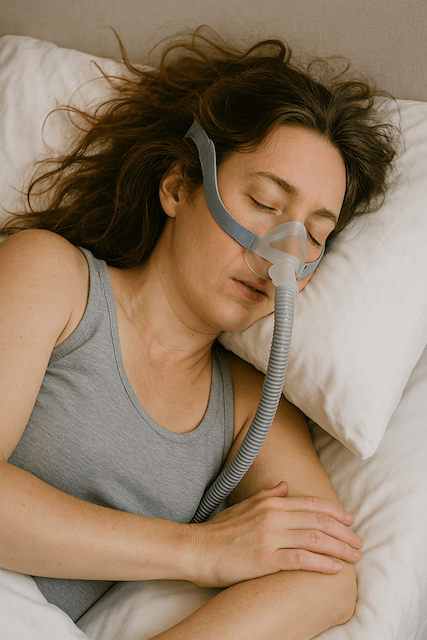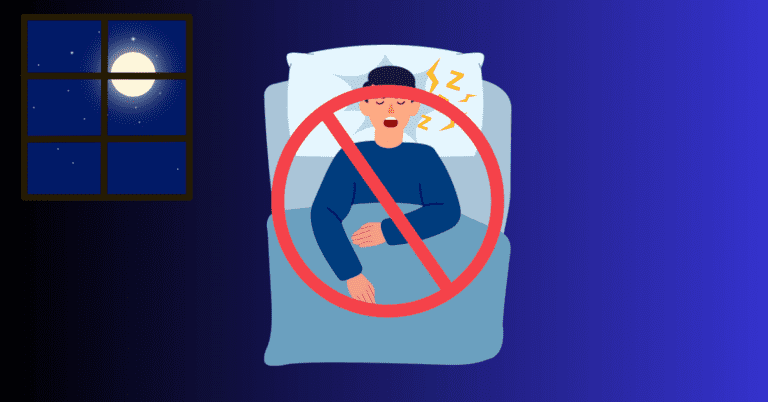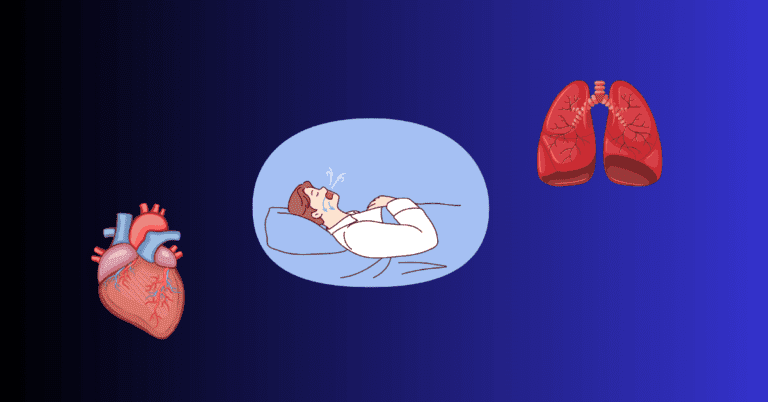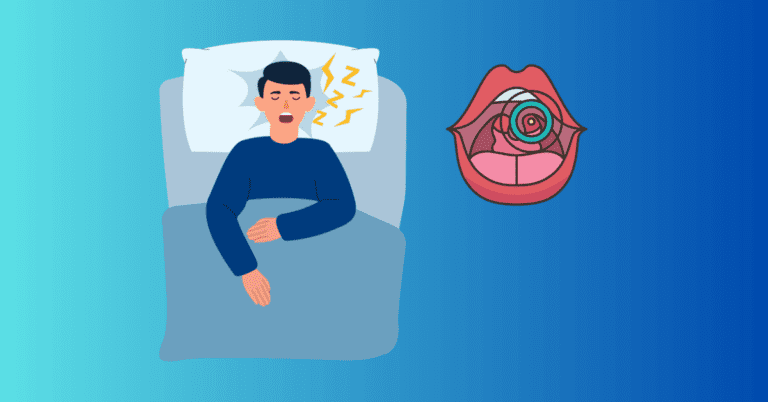Can Zepbound Manage Sleep Apnea?
Jeremy Smith is a long-term CPAP user and sleep apnea advocate. After being diagnosed with severe obstructive sleep apnea, he created ByJeremySmith.com to help others navigate CPAP therapy through personal stories, gear reviews, and practical advice.
Introduction
Managing obstructive sleep apnea (OSA) can be a multifaceted challenge, often requiring a combination of lifestyle adjustments, specialized treatments, and sometimes surgical intervention.
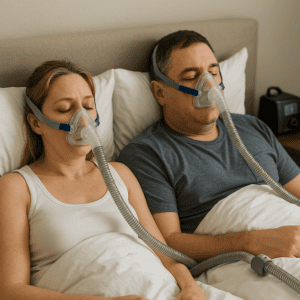
A key element in alleviating OSA symptoms is weight management.
For those struggling to lose weight through traditional methods alone, Zepbound (tirzepatide)—a recently FDA-approved injectable medication—offers a promising solution.
Understanding Obstructive Sleep Apnea (OSA)
OSA occurs when the throat muscles relax too much during sleep, causing partial or complete airway blockages.
This results in brief interruptions in breathing, leading to fragmented sleep and reduced oxygen levels.
Over time, untreated OSA can contribute to serious health concerns, such as cardiovascular problems and chronic fatigue.
Excess weight is a significant risk factor for OSA, as fatty tissue around the neck can constrict the airway. This is why weight loss often forms a critical part of sleep apnea treatment, with research showing that even modest weight loss can reduce OSA severity.
The Connection Between Weight Loss and Sleep Apnea
Losing 5-10% of body weight can significantly alleviate OSA symptoms. Reduced neck circumference means less pressure on the airway, allowing for more natural breathing during sleep.
However, achieving sustainable weight loss can be difficult, particularly for those whose sleep issues sap their energy and motivation. This is where Zepbound comes into play.
What is Zepbound and How Does It Work?
Zepbound contains tirzepatide, a dual-action compound that targets both GIP (glucose-dependent insulinotropic polypeptide) and GLP-1 (glucagon-like peptide-1) receptors. This mechanism enhances feelings of fullness and curbs appetite, supporting consistent and significant weight loss.
Administered as a once-weekly injection, Zepbound integrates smoothly into a patient’s routine, providing continuous support in managing weight. Its efficacy was demonstrated in SURMOUNT clinical trials, where participants experienced notable weight loss
Potential Benefits of Zepbound for Sleep Apnea
Integrating Zepbound into a treatment plan can provide several specific benefits for those with sleep apnea:
- Reduction in Apnea Episodes: Weight loss can decrease fatty tissue around the neck, easing airway obstruction and reducing the frequency and intensity of apneic events.
- Improved Airway Function: With less pressure on the throat, breathing becomes easier during sleep.
- Better CPAP Tolerance: Weight reduction may enhance the comfort and effectiveness of CPAP (Continuous Positive Airway Pressure) therapy for those who still require it.
Clinical Insights and Evidence
The SURMOUNT clinical trials strongly supported Zepbound’s potential. Participants in these studies saw significant weight reductions, which could translate into improved sleep quality and lessened OSA symptoms.
The treatment protocol typically starts with a low dose, incrementally increasing for optimal results, and is combined with lifestyle changes for comprehensive care.
Practical Considerations and Safety
Before starting Zepbound, it’s essential to be aware of possible side effects and safety guidelines:
- Common Side Effects: These include nausea, diarrhea, and reactions at the injection site. Serious concerns may involve pancreatitis, gallbladder issues, and thyroid cancer.
- Candidacy: Zepbound is not advised for individuals with a history of medullary thyroid carcinoma or Multiple Endocrine Neoplasia syndrome type 2 (MEN 2). Those with pancreatitis should also proceed cautiously.
- Lifestyle Synergy: The best results come when Zepbound is part of a broader treatment plan that includes healthy eating and regular exercise. Using it in isolation without lifestyle adjustments may limit its effectiveness.
Broader Health Implications
The benefits of using Zepbound for weight loss extend beyond sleep apnea relief. Weight reduction can improve cardiovascular health, help regulate blood pressure, and decrease the risk of type 2 diabetes.
For individuals with sleep apnea, these combined health gains can contribute to improved quality of life and reduced long-term health risks.
Conclusion
While CPAP machines, surgery, and other conventional treatments remain vital for managing sleep apnea, weight management through medications like Zepbound offers a compelling complementary strategy.
The ability to facilitate significant, sustained weight loss can improve sleep quality and reduce OSA symptoms, making this treatment option worth discussing with your healthcare provider.
Final Thoughts
Managing sleep apnea requires a multifaceted approach.
Zepbound may provide the boost needed for significant weight reduction, aiding in overall sleep quality and health.
Please consult a medical professional to ensure it’s suitable for your situation. Combining this treatment with diet, exercise, and regular medical follow-up could lead to better rest and more energized days.
For more in-depth insights and practical tips on managing sleep apnea, check out related resources on byjeremysmith.com.
References
- Detailed information about Zepbound’s usage, benefits, and safety considerations can be found at Drugs.com.
- Insights into the FDA approval and clinical trial data for Zepbound (tirzepatide), including its mechanism of action and potential benefits, are available from Eli Lilly’s official press releaseDrugs.comLilly Investor Relations.
Disclaimer: The content on this blog is for informational and educational purposes only and is not a substitute for professional medical advice. Always speak with your doctor or sleep specialist before starting, stopping, or changing any treatment or therapy related to sleep apnea or CPAP use.
